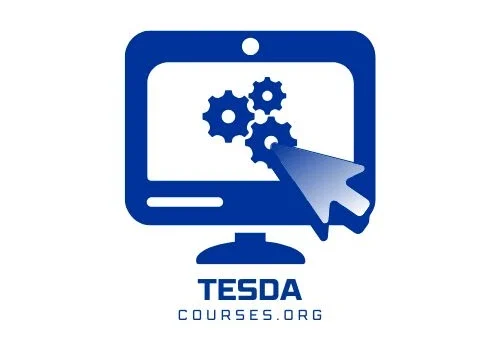Empowering Excellence: A Deep Dive into TESDA’s Capability Building Programs for Employees
Building the Builders of the Philippine Workforce
The Technical Education and Skills Development Authority (TESDA) stands as the cornerstone of the Philippines’ technical-vocational education and training (TVET) system. But to maintain its world-class standards, TESDA must first ensure its own architects—its employees, trainers, and administrators—are equipped with the most advanced methodologies and tools. This is the core mission of TESDA’s Capability Building Programs (CBPs).
This in-depth guide explores the suite of internal training programs developed by the National Institute for Technical Education and Skills Development (NITESD), designed to empower TESDA personnel with the competencies needed to drive the nation’s TVET system forward.
Understanding the Core Divisions: NITESD, CTADD, and TRDD
The development of these high-impact programs is primarily handled by NITESD through its specialized divisions:
- Curriculum and Training Aids Development Division (CTADD): Focuses on the pedagogical core—curriculum, learning materials, and assessment tools.
- Technology Research Development Division (TRDD): Leads the charge in digital transformation, specializing in eLearning platforms and courseware development.
These divisions ensure that every program is grounded in both educational best practices and cutting-edge technology.
A Comprehensive Overview of TESDA’s Key Capability Programs
TESDA’s internal training portfolio is vast and targeted. Here’s a breakdown of the major program categories and their objectives.
1. Curriculum and Learning Materials Development
This cluster focuses on the fundamental building blocks of effective TVET instruction.
- Development of CBLM Exemplars (Competency-Based Learning Materials):
- Objective: To equip staff with the skills to create standardized, self-paced learning kits. CBLMs allow for flexible, individualized learning, which is a hallmark of the TESDA system.
- Impact: Ensures uniformity and high quality in training delivery across all TESDA institutions nationwide.
- Developing Competency Standards & Facilitating CBC Development:
- Objective: To train experts in analyzing industry needs (Functional Analysis, Skills Mapping) and translating them into formal Competency Standards and Competency-Based Curricula (CBC).
- Impact: Directly aligns TVET programs with the exact demands of the labor market, enhancing graduate employability.
- Developing Institutional Assessment Tools:
- Objective: To build capacity for creating valid, reliable, and fair assessment instruments that accurately measure a trainee’s competency.
- Impact: Upholds the integrity and credibility of the Philippine TVET certification system.
2. Digital Transformation and eLearning
This is a critical area for modernizing TVET and making it more accessible.
- Appreciation Course on Flexible Learning:
- Objective: To provide a foundational understanding of flexible learning models (blended, online, distance) for leaders and administrators.
- Target Audience: Regional Directors (RDs), Provincial Directors (PDs), and TTI Administrators.
- Developing eLearning Materials (Phase 1: Online Training):
- Objective: A hands-on program for instructional designers and trainers to create engaging digital content for online courses.
- Blended Learning using Learning Management System (LMS) & Moodle Training:
- Objective: These are practical courses on using Moodle, a popular open-source LMS. They range from an “Appreciation Course” for leaders to a full “Regional/Institutional LMS Administration Training Program” for technical staff.
- Impact: Empowers TESDA institutions to deploy and manage their own online learning platforms, facilitating blended and pure online delivery.
- Developing Courseware Using Moodle:
- Objective: A technical deep-dive into building complete online courses within the Moodle environment. (Note: This is noted as “under construction,” indicating TESDA’s commitment to continuously updating its digital offerings.)
3. Area-Based and Demand-Driven TVET (ABDD-TVET)
This strategic initiative ensures TVET programs are hyper-localized and relevant.
- Capability-building Program (CBP) for ABDD-TVET Implementation: This is an umbrella program featuring critical modules:
- Industry Scanning: Techniques for researching local industry trends and needs.
- Organizing and Engaging the Industry Boards: Strategies for fostering strong public-private partnerships with local businesses.
- RLTDP – Module II (Regional/Local Training and Development Plan): Training on how to formulate data-driven training plans at the regional level.
- Skills Mapping & Functional Analysis: The core techniques for decomposing industry jobs into teachable skills and competencies.
Why These Programs Matter: The Ripple Effect
The investment in TESDA employees creates a powerful multiplier effect:
- Enhanced Training Quality: Better-skilled trainers and curriculum developers directly lead to higher-quality instruction for millions of Filipino trainees.
- Improved Employability: Programs aligned with real-world industry demands produce graduates who are immediately job-ready.
- Organizational Excellence: Building internal capacity ensures the long-term sustainability and innovation of the Philippine TVET system.
- National Development: A highly skilled workforce is the primary driver of economic growth and global competitiveness.
Conclusion: Investing in Human Capital for a Competitive Future
TESDA’s Capability Building Programs are not just employee trainings; they are a strategic investment in the very engine of the Philippines’ skills development. By continuously upskilling its own workforce in curriculum design, digital technology, and industry engagement, TESDA ensures it remains responsive, dynamic, and capable of fulfilling its mandate: to provide quality, accessible, and relevant technical education for every Filipino.
For the latest schedules and availability of these programs, TESDA employees are encouraged to coordinate with the National Institute for Technical Education and Skills Development (NITESD) or their respective regional offices.







